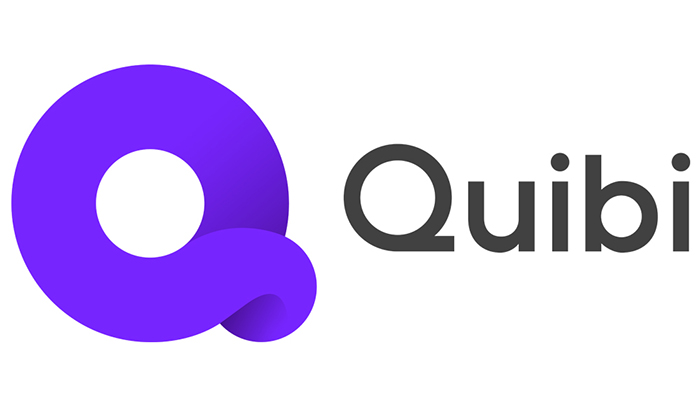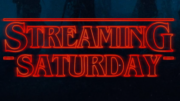By now you’ve probably read the stories. They’ve been all over the internet. Quibi is no more. Or it will be no more, soon. The major players, Jeffrey Katzenberg and Meg Whitman, announced in a joint post that they will be winding Quibi down and returning unused funds to investors. For today, though, Quibi’s site is still accepting new subscriptions.
Just a quick look back
Quibi was announced in December of last year, which seems like 5 decades ago. Our own Jake Buckler wrote about it at the time. He wasn’t kind. In particular, he asked if anyone would even remember Quibi in a year. Turns out, they probably won’t.
Quibi was supposed to capitalize on people using their phones for short videos. Sort of like YouTube but scripted, sort of like TikTok but longer. Sort of like Netflix if you could only watch six minutes at a time.
Originally, you weren’t even going to be able to get Quibi on your TV. It was designed for phones only. It was literally only last week that you started seeing some more app support for streaming devices.
It’s easy to blame the pandemic…
OK, launching a short-form video app for people on the go is a tough sell in 2020. Many folks had more time than they wanted at home this year and continue to. Quibi didn’t fit their needs. Even when people were outside for long periods, they weren’t outside to watch videos. So Quibi turned out to be the answer to a question no one asked.
But folks, that’s the easy answer. I think the real answer for why Quibi failed is that it was a dumb idea in the first place. That’s right, I said it.
I mean, it’s hard to get past the facts. Quibi had strong tech backing from Meg Whitman. It had Jeffrey Katzenberg, an entertainment executive with a massive string of successes. There was a decent stable of celebrities and proven writing talent. Quibi should have worked.
Even if 2020 had been a normal year, I don’t think Quibi would have survived. Because at its heart, it’s a bad idea. It’s an untenable idea. It’s a misunderstanding of trends that have been going on for half a century. I guess I’d better unpack that a little.
The history of “short form theater”
In 1969, a revolutionary television program launched on the nascent Public Broadcasting Service. At that time, shortly after the end of the baby boom, there was a lot of interest in “early childhood education.” There was a question of how to use the new medium of television to create better adults. One idea was to look at ways in which television had already been effective in changing people’s outlooks. Commercials, short stories intended with a simple digestible goal, were very very effective.
So, Sesame Street was born. Its goal was to use the forms of commercial television, including short segments, variety, and commercials, to educate children. It was a very revolutionary idea. And, since the program still thrives 53 years later using the same format, it was obviously a pretty good one.
It’s possible to draw a straight line between Sesame Street and MTV. Today, we don’t really talk much about MTV but in the early 1980s, it had massive cultural impact. Before they were called “Generation X,” teens in the 1980s were called the “MTV Generation.” They digested pop culture the way Sesame Street had taught them to… in very small, three minute chunks.
To the 21st century and beyond
As the 1980s gave way to the age of the internet, it seemed that attention spans continued to shrink. Pop culture started to be defined not by a TV station but by group messaging. There were email chains, and AOL Instant Messenger, then text messaging, Twitter, Vine, and Tiktok. It seemed by the mid-2010s that the way to build pop culture was to do it in extremely short bursts. And it was democratic. As much as the large TV and movie studios controlled entertainment, the national conversation could be disrupted by a nobody. And it was.
Remember Hampsterdance? The dancing baby? Do you remember asking, “What does the fox say?” What about the “ermahgerd” meme? These weren’t massive studio successes. They came from average folks. TV and movie studios still controlled longform entertainment, but memes belonged to the people.
So it’s not surprising that someone tried to create a paid video service that delivered the quick entertainment people craved. And it’s equally surprising that it didn’t work.
Quibi forgot two important things
There’s room for a lot of different kinds of information in our lives. Longform stories like movies, books, and TV give us continuity. They reward us for paying attention to something for a relatively long while. They imitate life. When we become engaged in a long story, we learn and understand the characters.
You can’t do that in six minutes. Period. And that’s what Quibi forgot.
They thought people could become intensely engaged in incredibly short stories and that very rarely happens. Really good writers can do it (I don’t count myself as one of them.) Talented amateurs can do it sometimes, but generally aren’t able to repeat their successes. For example, do you remember the followup song from Ylvis, the group that asked about the fox? Neither do I but I remember they had one.
Quibi’s creators thought they could create content short enough to be seen while waiting for traffic lights. They thought they could do it over and over again. And, it turns out they were wrong.
Quibi wasn’t going to succeed under the best of circumstances. And when the world changed, it made things much, much worse for Quibi. When people wanted to sit back and turn their brains off, Quibi was the last thing on their minds. People didn’t want six-minute episodes, they wanted to binge an entire season of Friends.
The last word
The one thing that really sticks out about Quibi is how many people were rooting for it to fail. I may not have liked what Netflix or Hulu did in the last few years, but I wasn’t rooting for it to fail. If anything I was rooting for them to improve. But Jake Buckler and I certainly weren’t the only people thinking Quibi would be a dismal failure. Today, pundits all over the world are celebrating that Quibi will be gone soon. It’s as if Quibi represented some sort of unwanted intrusion by corporate America into our meme culture, and we’re glad it’s disappearing.
Maybe that’s true. Or, maybe Quibi doesn’t deserve to the butt of so much derision this morning. Either way though, they’ll be little more than the answer to a Jeopardy question in a year’s time.
In the words of the great Stan Lee, ’nuff said.





